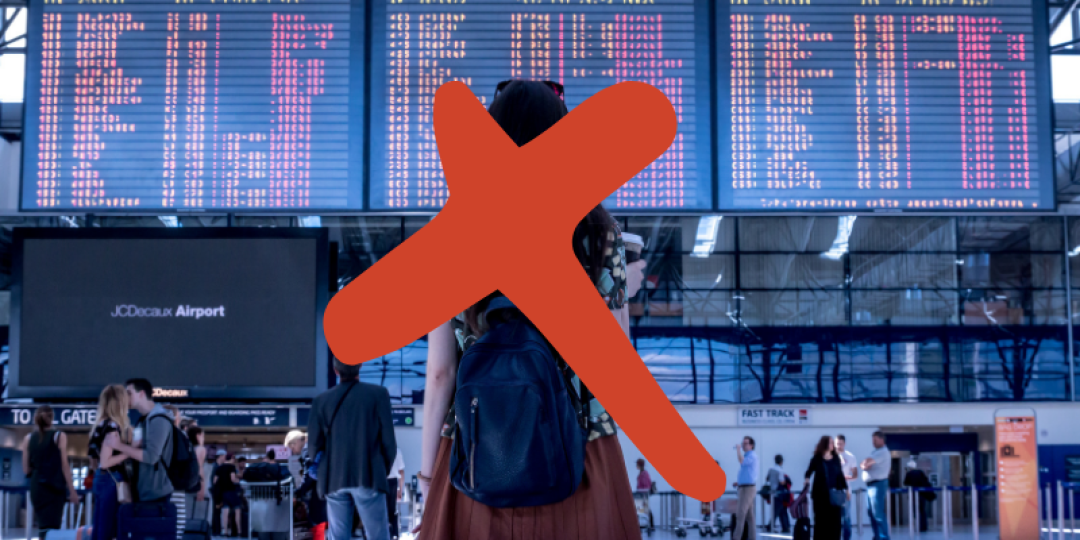South Africa’s tourism industry has expressed disappointment following the publication of the revised list of high-risk countries on Monday (October 19).
The revised list, although considerably shorter than the initial list, effectively bans leisure travellers from South Africa’s top-five source markets, including Germany, despite German leisure tourists being allowed into the country in the previous list (published September 30).
Lost bookings
The Departments of Health, Home Affairs, and Tourism have been instructed to review the list of high-risk countries every two weeks, but this creates an environment of uncertainty that is not conducive to confirming bookings, according to industry.
“This new list of high-risk countries does not support the recovery of tourism as per the President’s statement. Germany, Spain, and Canada were allowed to come to SA two weeks ago, now they are not allowed. What are we supposed to do with those that have booked and, more importantly, those who are arriving today and tomorrow? The tourism booking cycle needs certainty longer than two weeks,” said ceo of the Tourism Business Council of South Africa, Tshifhiwa Tshivhengwa in a Facebook post.
“For us, Germany is our third-biggest market and historically October and November are strongly supported by German tourists,” said owner of Grand Dédale Country House, Angelo Casu, adding that the bookings he had from German tourists for November now hung in the balance.
Angelo told Travel News that, having learned from the early days of the pandemic, his hotel no longer required a deposit far in advance, meaning that his business wouldn’t be impacted by refunds. “We have changed the way we work with our money and now only take deposits seven days before the booking. We have also changed our cancellation policies.”
Director of Alpha Destinations, Angela Matthews, said her business would potentially lose R1,2m on cancelled German bookings.
“Apart from the obvious financial impact, this just proves what we feared – that having this high-risk list would be just as bad as having closed borders.” She said when borders were completely shut, at least operators knew for sure that nobody could travel to South Africa.
“I spoke to a German agent who told me that South Africa was just not being taken seriously,” said Angela. “Agents won’t sell a destination where it’s not clear what’s happening.”
“The ‘red list’ needs to be scrapped,” said the Western Cape Minister of Finance and Economic Opportunities, David Maynier, adding that all tourists should be allowed to enter South Africa with a negative COVID-19 test.
“There is simply no greater risk for transmission of the COVID-19 virus based on the purpose of travel, yet the negative impact of continuing to limit the entry of leisure travellers to South Africa, especially from our key source markets, is severe and extreme.”
The Western Cape recently launched a marketing campaign aimed directly at German tourists, encouraging them to visit the province. David added that the addition of Germany to the high-risk list would ‘effectively kill’ the Western Cape’s key source markets.
Rationale unclear
There has still been no evidence offered as to the scientific basis for the high-risk list, despite repeated calls for clarity from industry.
The issue was raised during a SATSA webinar last week. Ceo of Private Safaris, Monika Iuel, said between the government departments involved, it was difficult to find a single point of accountability.
Commenting on Travel News about the changes to the list, a reader said: “Germany has the eighth lowest seven-day incidence in Europe, however, only very few European countries are on the list. Countries like Austria are not [on the list] any more, although they have some of the highest case numbers. It makes people think, that the list has nothing to do with ‘health’ matters but follows a different cause.”
An exception on the list is any Europeans who typically spend three months or longer in South Africa, allowing them to enter the country – further confusing industry. The so called ‘swallows’ will be allowed to enter the country, provided they have a negative COVID test, no matter their country of origin.
“They are allowing those whom we call ‘swallows’ to come in, but tourists coming for two or three weeks would be bringing in money just the same,” said Angelo, emphasising the unnecessary differentiation between the long-term visitors and short-term leisure travellers.














